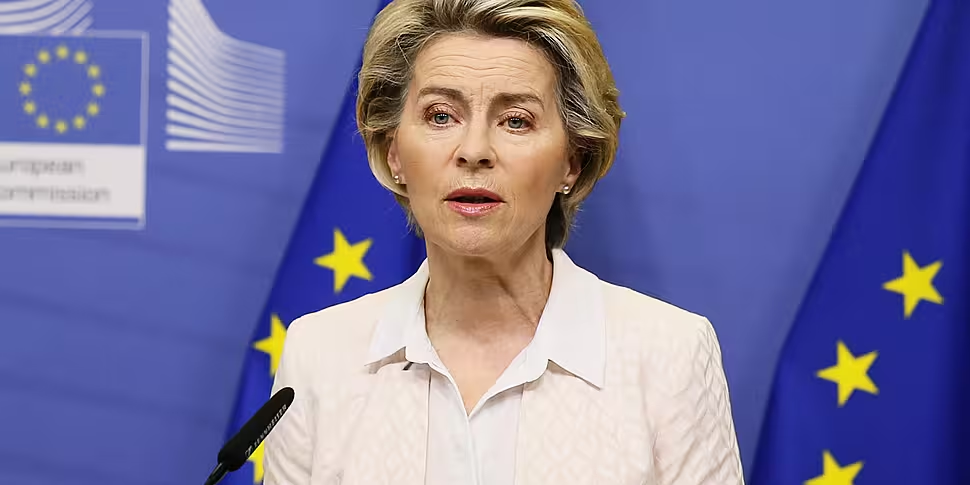The European Commission President Ursula von der Leyen has said 'significant differences remain' in several key areas of a deal between the European Union and Britain.
She made the statement following a phone call Saturday with British Prime Minister Boris Johnson.
The two leaders discussed the ongoing negotiations.
In a joint statement afterwards, they said: "We welcomed the fact that progress has been achieved in many areas.
"Nevertheless, significant differences remain on three critical issues: level playing field, governance and fisheries.
"Both sides underlined that no agreement is feasible if these issues are not resolved.
"Whilst recognising the seriousness of these differences, we agreed that a further effort should be undertaken by our negotiating teams to assess whether they can be resolved."
Both sides have told their chief negotiators to meet in Brussels on Sunday.
While Ms von der Leyen and Mr Johnson will speak again on Monday evening.
In a tweet, the EU's chief Brexit negotiator Michel Barnier simply said: "We will see if there is a way forward. Work continues tomorrow."
We will see if there is a way forward. Work continues tomorrow. https://t.co/dUGmZB4Dgx
— Michel Barnier (@MichelBarnier) December 5, 2020
Earlier Minister of State for European Affairs Thomas Byrne said even if there is a trade deal between the European Union and United Kingdom on January 1st, Ireland still faces 'huge differences, inconveniences and problems'.
He told Newstalk Breakfast with Susan Keogh: "No matter what happens in these talks - whether it's deal or no deal - Brexit results in substantial changes to the UK's relationship, and particularly Great Britain's, relationship to Ireland in terms of trade.
"There are going to be huge differences, huge inconveniences and huge problems after the 1st of January even if we have a deal."
Minister Byrne said he hoped a deal would mean that there would be no tariffs on trading goods, "but there will still be customs checks, there will still be items you won't be able to import from Britain or items that we won't be able to export".
But he said there is no doubt that a trade deal "will generally have a better atmosphere that issues can be resolved if we do that".









